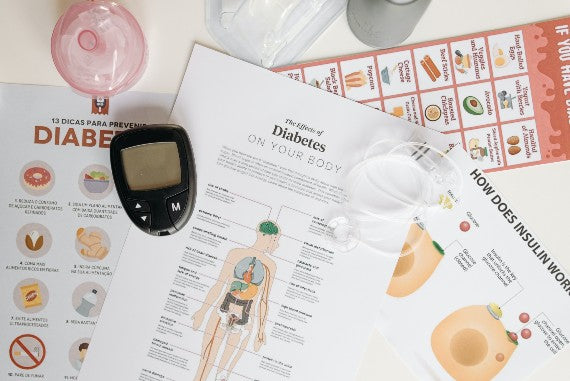Protein Drink for Diabetic
Protein drinks and supplements have gained a lot of popularity over the years and it can be overwhelming to know which one to choose. Having diabetes means you also need to consider how a protein supplement will affect your blood sugar and fit into your lifestyle and routine. People with diabetes are mindful of their carbohydrate intake, with the goal of maintaining consistent carbohydrate intake throughout the day and stable blood sugar levels.The Vidafuel Wellness Protein has only 5g of natural Fructose per serving (and 16g of protein) and 90 calories.
Achieving consistent carbohydrate intake throughout the day also involves the importance of adequate protein intake at meals. A balanced meal with both macronutrients carbohydrate and protein, leads to a more steady rise in blood sugar and more sustained energy. Daily protein needs are individualized, the recommended daily allowance (RDA) of protein is 0.8g/kg (or 0.36g/lb) body weight. Needs also depend on your goals- muscle gain, weight maintenance, prevention of sarcopenia (muscle loss) etc.
Another strategy for maintaining blood sugar control involves daily exercise. Exercise often helps the body’s sensitivity to insulin in addition to many other health benefits (heart health, strength, endurance, weight maintenance etc). Consuming a pairing of protein and carbohydrate before exercise helps fuel your body.
What Protein Drink Is Good For Diabetics?
If you struggle to get enough protein at meals, the Vidafuel Wellness Protein can be a quick and easy way to get 16grams of protein (the equivalent of almost 3 eggs). You can take Vidafuel on its own or mix it into a beverage of choice or add it to your yogurt or oatmeal etc. Studies have shown that a high protein breakfast helps with blood sugar response and control throughout subsequent meals (i.e. at lunch and dinner). The Wellness Protein provides a blend of collagen and whey protein.For people with diabetes, choosing a protein supplement should include looking for options without a lot of added sugar, minimal artificial sweeteners, no artificial colors or flavors and finally a taste/flavor one likes.
Many protein drinks and powders tout being low sugar or sugar-free and to achieve this, they are loaded with artificial sweeteners. Artificial sweeteners often cause GI upset, increase sweet cravings and can have detrimental effects on one’s gut health. Instead, try choosing a protein supplement that has a minimal amount of natural sugar.
Fructose, the natural sugar found in the Vidafuel Wellness Protein, has a lower glycemic index than sucrose, which means it raises your blood sugar more slowly. This is another reason why the Wellness Protein is a great choice if you have diabetes!
Check the nutrition label for grams of carbohydrates (check for added sugars) and read the ingredient list to verify if any artificial sweeteners are used. Also consider the total calories and if you are aiming for a protein supplement with substantial calories or not.
References
- How much protein do you need every day?
Harvard Health Publishing
https://www.health.harvard.edu/blog/how-much-protein-do-you-need-every-day-201506188096
- Centers for Disease Control and Prevention
https://www.cdc.gov/diabetes/index.html
- A high-protein breakfast induces greater insulin and glucose-dependent insulinotropic peptide responses to a subsequent lunch meal in individuals with type 2 diabetes. National Library of Medicine
https://pubmed.ncbi.nlm.nih.gov/25733459/
- Sugar substitutes: Health controversy over perceived benefits
https://www.ncbi.nlm.nih.gov/pmc/articles/PMC3198517/pdf/JPP-2-236.pdf
- Dietary Fructose and Metabolic Syndrome and Diabetes. National Library of Medicine
https://www.ncbi.nlm.nih.gov/pmc/articles/PMC2714385/

